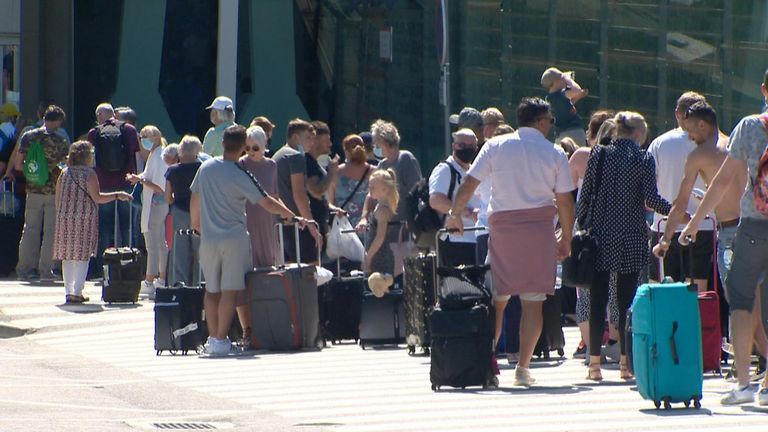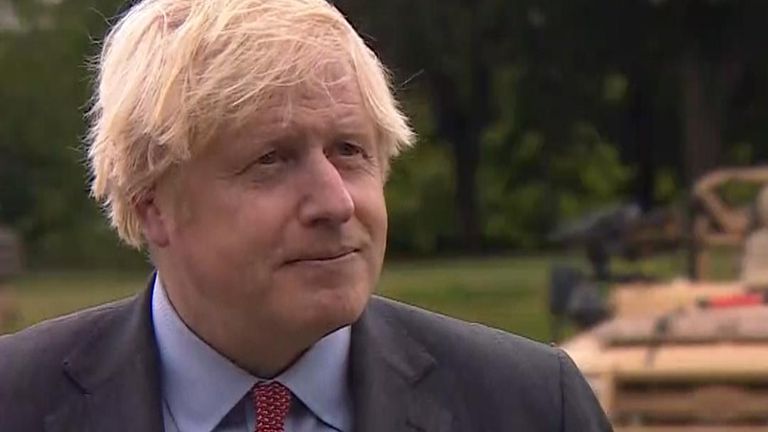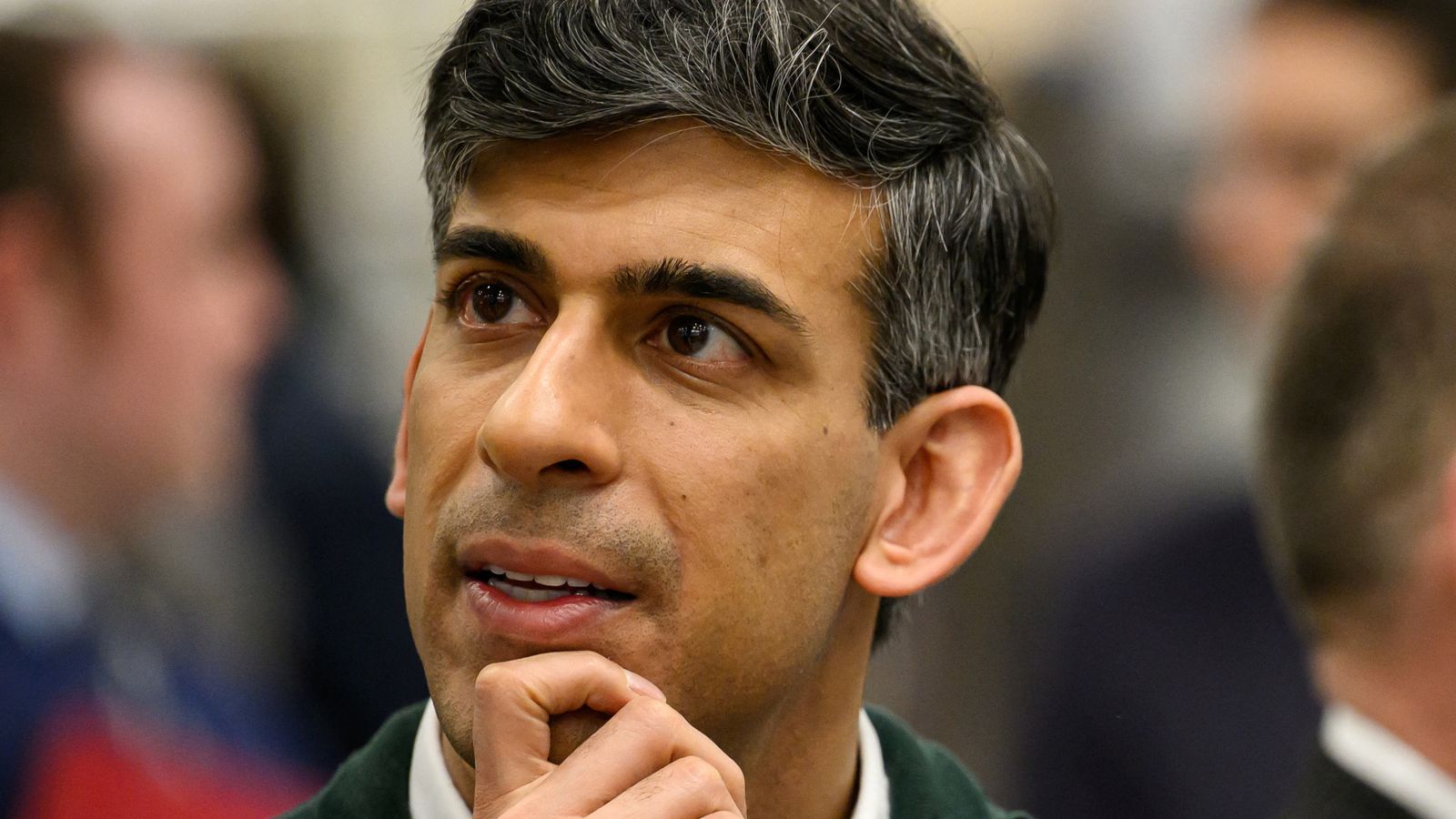Spain’s Balearic islands, Malta, Madeira, and some islands in the Caribbean – including Barbados – have been added to England’s travel green list, Transport Secretary Grant Shapps has announced.
The Balearic islands are made up of Ibiza, Menorca, Majorca and Formentera.
The move means those heading to some popular holiday hotspots will not have to quarantine on their return following the latest review of the travel traffic light system.
Live COVID updates from the UK and around the world
The changes come into effect at 4am on Wednesday 30 June.
The traffic light rules mean:
Green list: Those returning from green locations are not required to self-isolate but they must take one post-arrival coronavirus test.
Amber list: People arriving in the UK from amber list countries have to take two post-arrival tests on day two and day eight after arriving and self-isolate at home for 10 days, although they can reduce that time if they take an additional negative test on day five. The government does not recommend people go to amber list nations, unless it is essential.
Red list: Only British and Irish nationals are allowed into the UK from red list countries and quarantine at a government-approved hotel is mandatory.
More countries have been added to the red list. These include Haiti and Tunisia.
This is the second review of the government’s travel lists since the traffic light system came into force on 17 May.
It comes after the PM postponed the easing of domestic restrictions in the UK by four weeks to the 19 July earlier this month due to rising cases of the Delta variant.
At the government’s last travel list update at the beginning of June, Portugal moved from the green list to the amber list, forcing many travellers to scramble back to the UK before the quarantine deadline.
At that time, seven countries were also added to the red list from the amber list. They were: Afghanistan, Bahrain, Costa Rica, Egypt, Sudan, Trinidad and Tobago, and Sri Lanka.
Mr Shapps admitted that moving Portugal to the amber list was “a difficult decision” given its popularity, but that it was downgraded because the government wants to give the UK “the best possible chance of unlocking domestically” when safe to do so.
Each country is assessed based on a range of factors, including what proportion of a population is vaccinated, rates of infection, emerging new variants, and access to reliable scientific data and genomic sequencing.
There have been calls from holidaymakers and travel firms for more countries to be moved from the amber list and for the government to drop the self-isolation rules for those who have been fully vaccinated.
But those hoping to book a late summer getaway could face another obstacle – with German Chancellor Angela Merkel calling for travellers from the UK to be quarantined wherever they arrive in the EU, due to growing fears over the spread of the Delta variant.
“In our country, if you come from Great Britain, you have to go into quarantine – and that’s not the case in every European country, and that’s what I would like to see,” she said.
Environment Secretary George Eustice told Sky News that Mrs Merkel’s comments were “unjustified”.
The announcement came after Boris Johnson indicated earlier on Thursday that a relaxation of travel rules for those who have had two doses of a coronavirus vaccine is on the horizon.
There is a “real opportunity” to “open up travel through the double jab”, the prime minister said.
And Health Secretary Matt Hancock told Sky News on Tuesday that quarantine-free travel to amber list countries for people who have had two jabs is “absolutely something” the government is “working on”.
The UK reported 16,703 new COVID-19 cases and another 21 coronavirus-related deaths in the latest 24-hour period, according to government data.
A total of 43,656,327 first jabs have been administered in the UK, while 31,908,103 people have been fully vaccinated.
Earlier on Thursday, Public Health England said that cases of COVID continue to rise in all parts of the country.








